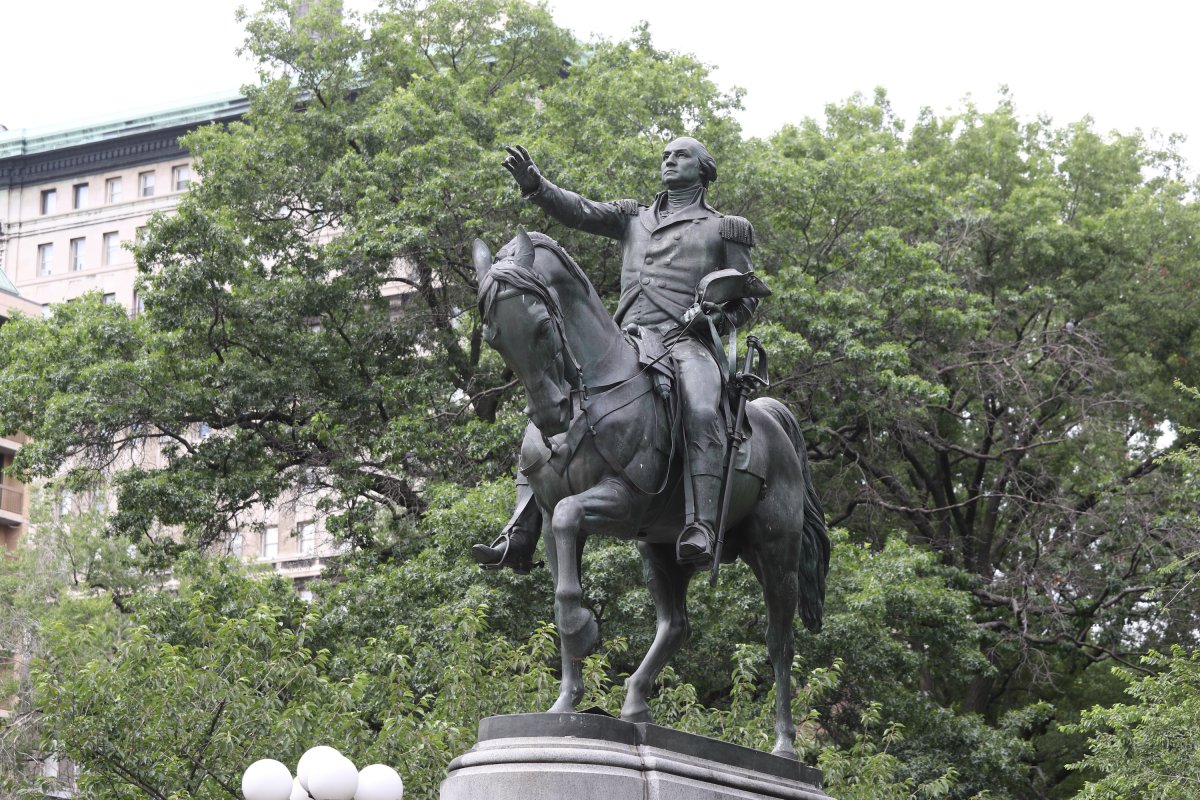As America navigates the tumultuous waters of the 21st century's international landscape, the time has come to revisit the foundational principles of our nation's foreign policy. Nearly three centuries after George Washington's birth, the strategic outlook of our first president—what international relations scholars Arta Moeini and Christopher Mott call Washingtonian Realism—offers a timeless blueprint for safeguarding America's interests in today's complex geopolitical arena. In an age marked by China's rise, persistent turmoil in the Middle East, and conflict in Ukraine, Washington's pragmatic approach merits a renaissance among contemporary policymakers.
Contrary to what some may think, Washingtonian Realism is not merely a relic of the 18th century, but a living philosophy that champions America's unique geopolitical advantages. From his days leading militia on the colonial frontier to his presidency, Washington understood that America's strength lies in its natural geography, its capacity for unity despite myriad differences, and its cautious diplomacy with foreign powers. This approach does not mean retreat from global engagement, but rather a more thoughtful and selective involvement with the world—one that aligns closely with our national interests. Washington's realism enabled the nascent republic to navigate the treacherous waters of international politics without sacrificing its autonomy or prosperity.
If he were alive today, what would George Washington's foreign policy look like? Three key characteristics defined his approach: an emphasis on national unity, a desire for economic self-sufficiency, and a keen understanding of America's geographical advantages and unique location in the world.
In today's context, Washingtonian Realism first requires us to commit to strengthening the bonds of national unity. Washington feared the divisive potential of partisan politics, especially those caused by differences in foreign policy. Today, as we confront an increasingly polarized domestic political landscape, he would urge us to find common ground in what truly distinguishes America from the rest of the world. Crafting a foreign policy that Americans across the political spectrum can support means articulating clear objectives, ensuring transparency about our goals, and demonstrating beyond doubt how international engagements serve our collective interests.

Next, focusing on economic resilience, particularly through a robust manufacturing sector, is critical. Washington and his treasury secretary, Alexander Hamilton, recognized the vital importance of fostering an economy that promoted domestic manufacturing alongside international trade. This strategic emphasis was designed to minimize America's dependence on European powers for manufactured goods, ensuring the country's economic independence and strength on the world stage. Today, as we confront an environment where China has become the world's "sole manufacturing superpower," it is imperative to once again honor this foundational principle. Policymakers must rebuild a sustainable and innovative production-oriented economy that supports high-quality jobs for Americans, reduces vulnerabilities in global supply chains, and positions the United States as a leader in the technologies that will shape the 21st century.
Finally, in our international dealings, Washingtonian Realism advocates for a pragmatic approach that values partnerships based on mutual respect and shared goals. As Washington understood in his time, the United States' alliances and partnerships must be reciprocal and aligned with our strategic interests. This doesn't mean turning our backs on the world, but engaging with international partners in a manner that respects America's values and interests.
Today, implementing such an approach calls for a reevaluation of our current foreign policy. America's provision of security toward Europe, for example, has long been regarded as a kind of entitlement. Understandably, our allies do not want to be placed in the politically risky position of having to either raise taxes or cut welfare to sustain their own defense. Yet this is no reason to have the United States bear the burden; allies are not dependents, and American citizens have their own pressing domestic spending and tax concerns.
Ultimately, the essence of Washingtonian Realism lies in its pragmatism, strategic flexibility, and commitment to a principled engagement with the world—one that prioritizes diplomacy and cooperation over unilateralism. It champions the idea that America's foreign policy should be a reflection of the common sense of its greatest statesmen; it advocates an approach that integrates the wisdom of our past with the realities of our present.
In embracing Washingtonian Realism for 21st-century America, we would not just be paying homage to the insights of our first president. We would be acknowledging the need for a foreign policy that can adapt to the challenges of a changing world, while staying true to our foundational principles.
This is a vision for U.S. foreign policy that can inspire broad support, bridge divides, and reinforce the idea that, in diplomacy as in all things, America's strength is rooted in its unity, its democracy, and its commitment to the common good.
Carlos Roa is an Associate Washington Fellow at the Institute for Peace and Diplomacy and a Visiting Fellow at the Danube Institute. He is the former executive editor of The National Interest and remains a contributing editor of that publication.
The views expressed in this article are the writer's own.
Uncommon Knowledge
Newsweek is committed to challenging conventional wisdom and finding connections in the search for common ground.
Newsweek is committed to challenging conventional wisdom and finding connections in the search for common ground.
About the writer
To read how Newsweek uses AI as a newsroom tool, Click here.








